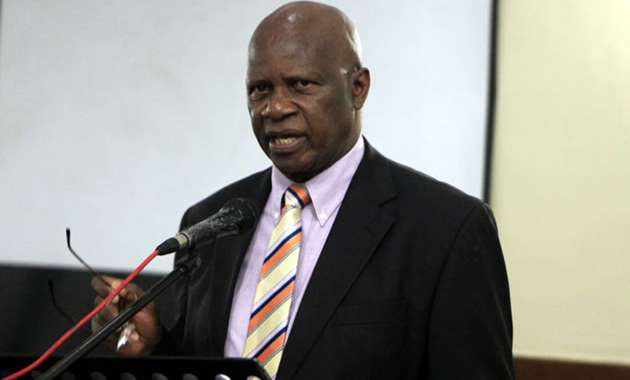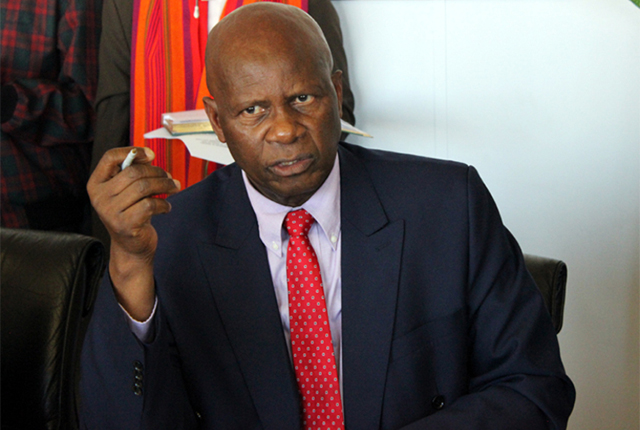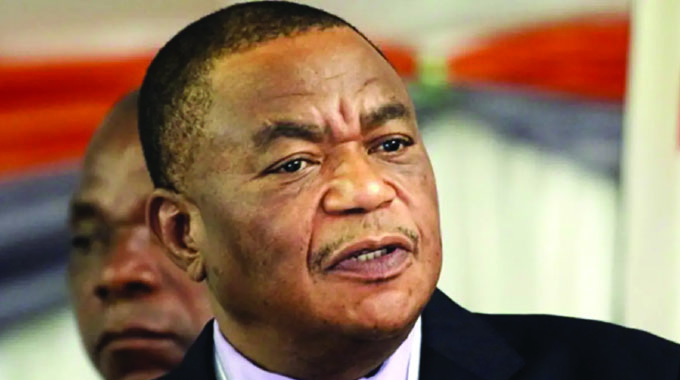Nation expects economic stimulus

Business Reporters—
FINANCE and Economic Development Minister Patrick Chinamasa is expected to present the 2017 National Budget this afternoon largely oriented towards a cocktail of measures to boost production and encourage foreign direct investment. The budget comes two days after President Mugabe delivered his State of the Nation Address, focusing on initiatives to stimulate production in line with Zim-Asset and the 10-Point Plan for economic growth.
With little change expected regarding money allocated to traditional expenditure areas due to tight fiscal space, giving incentives to boost production and investment is critical in driving growth, creating jobs and improving competitiveness.
In the same vein, Minister Chinamasa is expected to provide clarity on the pronouncement he made in the 2016 Budget Review Statement on the restructuring of the civil service. Zimbabweans also expect to hear the action Government will take against abuse of bond notes, amid reports of pricing discrepancies between the greenback and bond notes.
Analysts and Zimbabweans in general said policies that strengthen the country’s competition landscape would help transform the economy into a vibrant export-driven economy. Already, Government has put in place policy initiatives to address some of the issues relating to the supply side of the economy such as improving costs of doing business.
About a month ago, President Mugabe signed into law, the Special Economic Zones Bill, a development that is expected to attract foreign direct investment and create thousands of jobs. The Reserve Bank of Zimbabwe has also put in place production enhancement measures to support selected economic sectors of the economy including mining and agriculture.
As such, Minister Chinamasa is expected to come up with complementary policies to reinforce such initiatives. It is also expected that the budget will propose measures to support and increase exports and inflows of foreign currency to ease liquidity problems.
“Our biggest challenge is low production and low productivity, which has seen us failing to compete with other economies,” economist Dr Gift Mugano said in an interview. “We, therefore, expect the budget to be production focused. We need to boost productivity along the entire value chain to enhance our export capacity and reduce imports.”
Policy measures, which the minister is expected to take into consideration include promotion of value chain development and financing through use of tax incentives. For instance, corporate tax for companies participating on value chain finance should be reduced.
Zimbabwe National Chamber of Commerce chief executive Mr Takunda Mugaga said the budget should promote access to various resources that promote production.
“Tax authorities are also creating hell for local businesses and maybe the Minister should look at that as well especially the penalty tax is too high at 100 percent,” he said.
Mr Mugaga added the 2017 National Budget should also address the investment climate and make it conducive for foreign investors. The first step, he said, should be holding campaigns in the diaspora to help change the prevailing negative perception that emanated from bad publicity the country was subjected to by western media.
“People want to come to Zimbabwe to invest, but they have very negative perceptions of the country. The minister should allocate funds for massive campaigns outside the country to change that view,” he said. Mr Mugaga said the minister should monitor the civil service, without necessarily downsizing it, but restructure some posts to avoid duplication of roles to avoid an unsustainable expenditure,” he said.
Confederation of Zimbabwe industries president Mr Busisa Moyo cited liquidity constraints and low Nostro account balances as key impediments to industry competitiveness. These, he said need to be addressed to increase local industry production.
“The bond notes are still not sufficient, and these issues need to be managed. We want a comprehensive plan for economic revival. Fiscal management is a key factor that should be looked at, that is revenue and expenditure in both private and public sectors.”
With regards to the mining sector, the biggest problem is multiplicity of taxes. Analysts said the budget should focus on raising productivity and competitiveness of the sector.
They said one way to reduce the tax burden is to make royalties tax deductible for investing companies. VAT on imported equipment has been one of the constraining factors on the sector.
The rationale behind this measure is that it will increase mineral production, employment, tax collection, improve capital investment in mines and downstream benefits. Miners who were surveyed for the 2016 State of Zimbabwe’s Mining Industry Report said the non-deductibility of royalty as a tax expense was increasing their costs of production.
One way the budget is expected to stimulate savings is through removing taxes on fixed or long term deposits and enforcement of plastic money in transactions for all Government agencies.
This will go a long way in improving liquidity inflows, attracting bank deposits from the public, reducing transaction costs, bank transaction costs and formalising transactions. Such a scenario will provide funds for investment and improvements in other sectors of the economy.
On the tourism industry, analysts said there was need to strike a balance between revenue collection and industry viability. In this regard, based on international experience and recommendations of a study of impact of taxation on industry viability done by the Zimbabwe Economic Policy Analysis and Research Unit, the Minister should gradually reduce VAT. This would recognise its vulnerability to competition while giving them time to play a role in contribution to government revenue.










Comments